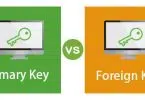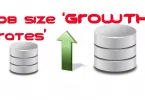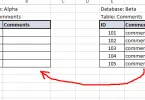There’s loads of confusion concerning the distinction between a DBMS and an RDBMS. I’ve even seen “RDBMS vs RDBMS” discussion board posts the place the accepted reply outlines the variations between DBMS and RDBMSs as if they had been two distinct and various things.
Nonetheless, this may be deceptive. The very fact is, an RDBMS is a DBMS. However, a DBMS just isn’t all the time an RDBMS (nevertheless it typically is). So, is there a distinction between a DBMS and an RDBMS or not? Is “DBMS vs RDBMS” the proper approach of taking a look at it, or is there extra to it? First, let’s have a look at the definitions of every.
What’s DBMS?
DBMS stands for Database Administration System. It’s a utility that permits the creation and administration of databases. The database administration system is a broad time period that features any system that performs that operation.
What’s RDBMS?
RDBMS stands for Relational Database Administration System. In different phrases, it’s a DBMS with relational added to the entrance. It is a specific kind of DBMS that makes use of a relational mannequin for its databases. An RDBMS, subsequently, lets you create relational databases.
The distinction between DBMS vs RDBMS
| Parameter | DBMS | RDBMS |
|---|---|---|
| Storage | DBMS shops knowledge as a file. | Knowledge is saved in the type of tables. |
| Database construction | DBMS system, shops knowledge in both a navigational or hierarchical kind. | RDBMS makes use of a tabular construction the place the headers are the column names, and the rows include corresponding values |
| Variety of Customers | DBMS helps single customers solely. | It helps a number of customers. |
| ACID | In a daily database, the knowledge will not be saved following the ACID mannequin. This may develop inconsistencies in the database. | Relational databases are more durable to assemble, however, they’re constant and effectively structured. They obey ACID (Atomicity, Consistency, Isolation, Sturdiness). |
| Sort of program | It’s the program for managing the databases on the laptop networks and the system arduous disks. | It’s the database programs that can be used for sustaining the relationships amongst the tables. |
| {Hardware} and software program wants. | The low software program and {hardware} wants. | Greater {hardware} and software program want. |
| Integrity constraints | DBMS doesn’t help integrity constraints. The integrity constants should not impose at the file stage. | RDBMS helps the integrity constraints. |
| Normalization | DBMS doesn’t help Normalization | RDBMS may be Normalized. |
| Distributed Databases | DBMS doesn’t help distributed databases. | RBMS gives help for distributed databases. |
| Ideally fitted to | DBMS system primarily offers a small amount of knowledge. | RDMS is designed to deal with a considerable amount of knowledge. |
| Dr. E.F. Codd Guidelines | DBMS fulfill lower than seven of Dr. E.F. Codd Guidelines | DBMS fulfill 8 to 10 Dr. E.F. Codd Guidelines |
| Shopper Server | DBMS doesn’t help client-server structure | RDBMS helps client-server structure. |
| Knowledge Fetching | Knowledge fetching is slower for advanced and enormous quantities of knowledge. | Knowledge fetching is fast due to its relational method. |
| Knowledge Redundancy | Knowledge redundancy is frequent on this mannequin. | Keys and indexes don’t permit Knowledge redundancy. |
| Knowledge Relationship | No relationship between knowledge | Knowledge is saved in the type of tables that can be associated with one another with the assist of overseas keys. |
| Safety | There isn’t any safety. | A number of ranges of safety. Log records data are created at OS, Command, and object ranges. |
| Knowledge Entry | Knowledge components must be entered individually. | Knowledge may be simply accessed utilizing SQL queries. A number of knowledge components may be accessed at a similar time. |
| Examples | Examples of DBMS are a file system, XML, Home windows Registry, and so forth. | An instance of RDBMS is MySQL, Oracle, SQL Server, and so forth. |
KEY DIFFERENCE
- DBMS shops knowledge as a file whereas in RDBMS, knowledge is saved in the type of tables.
- DBMS helps single customers, whereas RDBMS helps a number of customers.
- DBMS doesn’t help client-server structure however RDBMS helps client-server structure.
- DBMS has low software program and {hardware} necessities whereas RDBMS has increased {hardware} and software program necessities.
- In DBMS, knowledge redundancy is frequent whereas, in RDBMS, keys and indexes don’t permit knowledge redundancy.
True RDBMSs
Though the hottest DBMSs are of the relational mannequin, few industrial RDBMSs truly adhere to all of Codd’s 12 guidelines of a relational database administration system. These programs sometimes fulfill a few of the guidelines however not all. Some purists refer to those as Pseudo Relational Database Administration Techniques (PRDBMS), whereas referring to any DBMS that satisfies all of Codd’s 12 guidelines as being a Really-Relational Database Administration System (TRDBMS).
Different DBMSs
Though RDBMS has been the hottest database mannequin since the Nineteen Eighties, there are lots of different DBMS varieties. For instance, OODBMS, ORDBMS, flat file, hierarchical, community, in addition to a complete host of NoSQL database programs, similar to column-store, doc retailer, graph, key-value, and extra.






Leave a Comment